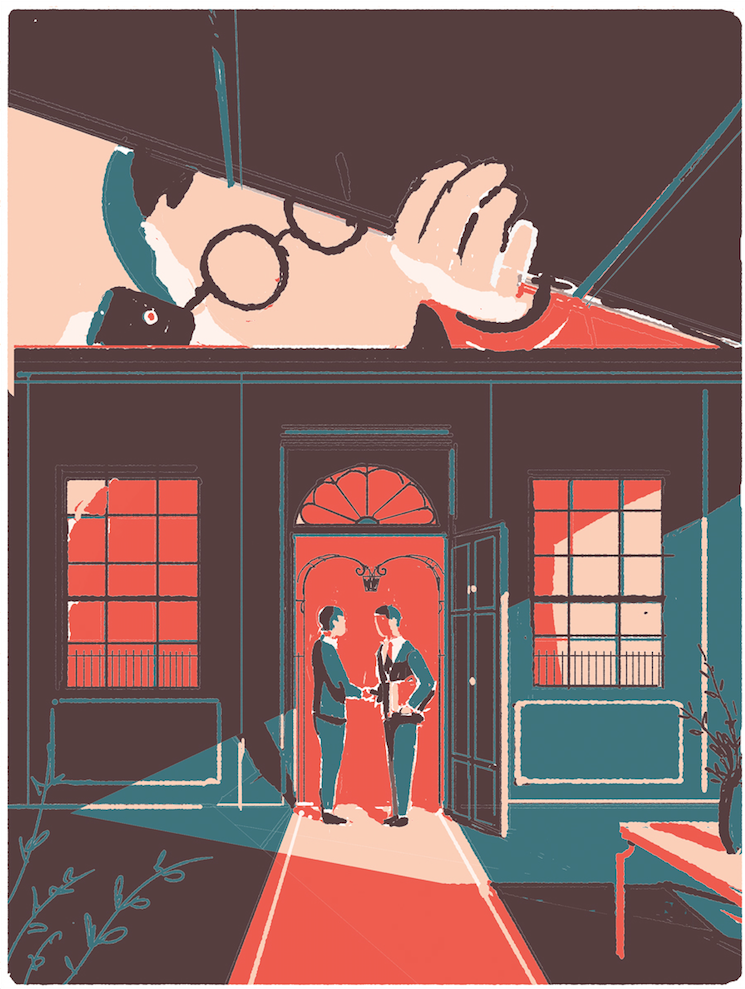The Revolution Will Be Digitised
Digital initiatives are emerging that intend to fill the information gaps in young people’s political understanding

Engaging younger voters in the political process is no easy task. Perhaps the answer lies in the wave of digital platforms that are speaking to this generation in their own language.
As American journalist and political pundit Cal Thomas once said, “One of the reasons people hate politics is that truth is rarely a politician’s objective.” And he’s right: there aren’t many occupations, this side of being a traffic warden, that draw more ire and disdain than that of the politician.
But perhaps that resentment is justified, because politicians, by and large, are a notoriously slippery bunch. Saying one thing, doing another, claiming to have the people’s interests at heart when in fact they’re protecting their wealthy backers or, in the worst cases, just being downright corrupt. When those in power can’t be trusted, it can quite understandably lead to mass disengagement and disinterest within certain demographics.
Younger voters are particularly disenfranchised. In the UK’s general election in 2010, the turnout rate for a typical 70-year-old was 36% higher than for a typical 20-year-old, according to the Institute for Public Policy Research. Unsurprisingly this leads to a serious imbalance in whose interests politicians prioritise.
To address this, initiatives are emerging that intend to fill the information gaps in young people’s political understanding, engage them with democratic systems, and empower them to take their elected officials to task on the issues that concern them. And vitally, these services are speaking a language that this demographic is fluent in: digital. “A lack of understanding and education in schools is a real issue.
There are millions of young people not even registered to vote,” explains Steve Cole of non-profit movement Bite the Ballot, a UK-based, non-party affiliated community interest company. It aims to educate and empower young voters through platforms they’re familiar with and by using non-technical terms.
“We find that people are often put off by the language of politics – I mean, what the hell is ‘quantative easing’ to an 18-year-old?”
One of the reasons people hate politics is that truth is rarely a politician’s objective Bite the Ballot’s latest, and arguably most ambitious project to date is Leaders Live, a live-streamed debate where physically present and digital viewers can directly question the leader of a primary political party.
Since November 2014, Nigel Farage, Ed Miliband, Natalie Bennett and Nick Clegg have taken part; David Cameron is the only invitee who hasn’t yet taken up the challenge. #LeadersLive has achieved 80m social media impressions, and a likely reason for its success, is that it’s rejecting the traditional avenues of political discourse, such as TV debates and physical leaflets, and is speaking to young people in their own language.
“It bridges the gap between young people and the pinnacle decision-makers,” says Cole. “The whole show is geared to be on their terms, their social media platforms and on their devices – the issue with TV debates is that the younger generation is moving away from TV and so will be less engaged in such a format.
These initiatives have to be digital in execution as the target audience is digital by default.” Another example of this kind of engagement – of young people being met on platforms they’re familiar with and understand – is Ask Amy, an app that offers users the ability to ask it any political question and get an unbiased, reliable answer back.
Joe Hall, one of Ask Amy’s creators, describes it as being “a bit like Siri for politics. It’s designed for people in their 20s and 30s as a simple, easy way to ask questions about politics and get short, straight-talking answers.” Sure, a lot of the information attainable from Ask Amy could be found during a dedicated Googling spree, but what’s important is that it’s dispensed in the language of a digital native.
Technology and the online world have rocked politics, from WikiLeaks to NSA hacking revelations to the role of Twitter in the Arab Spring. “The way Amy’s presented – as a chat-style app – is something really familiar,” says Hall, adding that the potential of services like his is huge and that we’ve actually already witnessed the power of this new information age.
“Technology and the online world have rocked politics, from WikiLeaks to NSA hacking revelations to the role of Twitter in the Arab Spring,” says Hall. “Digital political services are likely to bring more of this kind of thing into politics: radical transparency, grass roots power and the questioning of existing power structures.”
It sounds like hyperbole, but when you consider the information dissemination potential of the internet, and when that potential is placed in the hands of the most digitally savvy generation in history, these claims seem a lot more believable. In the US, similar services are cropping up, all using digital models and platforms to give power to young people.
Mayday.us seeks to weaken the grip money, and those who donate to political parties, have over Congress. By launching a crowdfunded “superPAC”, Mayday wants to build a big enough fund so that politicians have an alternative to the lobby groups and big businesses they currently rely on for financial support. By offering politicians this kind of breathing room, Mayday hopes it can give Congress time to enact the reform it needs to break itself away from the special interests of external forces.
It’s interesting to see a Kickstarter-type model being applied to the political field, and this suggests that digital solutions, and the digitally savvy citizens who created them, can have a serious impact on modern politics. Mayday wants to put an end to the “As paid for by….” disclaimer that dogs the closing seconds of so many political campaign ads, and so far that looks like a goal that’s achievable.
With over $11m raised so far from nearly 70,000 donors, the aim of passing fundamental reform by 2017 doesn’t seem impossible. An embodiment of this mindset and pushing forward the internet as a route to engaging even the most jaded voter, is 17-year-old Nicholas Rubin.
Despite not even being old enough to vote, the teenage developer created Greenhouse, a simple browser extension that detects a politician’s name websites’ text and pops up a window displaying all the financial contributions they’ve received and where that money came from. For example, should you be reading an article about Republican member of Congress Eric Cantor, all you’d have to do is hover over his name to discover that he has received $908,900 in donations from security and investment companies.
“I think that many people believe the system is too broken to fix or even participate in,” says Rubin. “While the system, in many aspects like corruption, is dysfunctional, citizens can still have an impact.” And as open-source technology becomes not only more accessible but wider spread, citizens can have more of an impact than ever. “People want transparency and they’re ready to work together to solve issues like this.”
Digital technology has been responsible for revolutionising almost every sector of our society, from retail to entertainment to transport, so it seems highly unlikely that political establishments and practices will remain unaffected by it. Especially when the people responsible for these innovations are starting to pay a lot more attention to the governing of their world.
“Younger people are perhaps better equipped than older generations to understand that in a global, networked world dominated by neoliberal policies, institutions of representative democracies are much less powerful than they used to be,” says Cristian Vaccari, a lecturer at the University of London and the University of Bologna and author of Digital Politics in Western Democracies.
With information so freely available and so instantly spreadable thanks to the internet, and with it being utilised in powerful, effective ways, there are fewer and fewer places where the shadier characters of politics can conduct their business. Perhaps they’ll have to start playing by the rules?
Originally printed in Protein Journal #15


